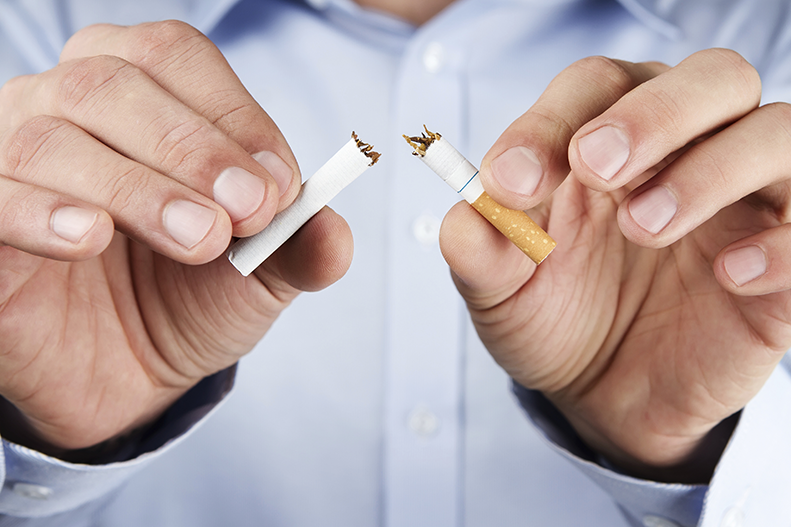Because nicotine is an addictive drug, certain feelings often are experienced when the drug is stopped. These feelings are called withdrawal symptoms or “symptoms of recovery.” This means that your body is healing and getting back to when it was nicotine free.
Symptoms may start within hours of quitting and may peak in the first 2 to 4 days. Everyone reacts differently to them.
Never Miss a Beat!
Subscribe to Our HealthBeat Newsletter!
Thank you for subscribing!
You can now select the specific newsletters you'd like to receive.
You are already subscribed.
Subscribe to more newsletters in our email preference center.
Sorry, an error occurred. Please try again later.
Get Healthy Tips Sent to Your Phone!
Smoking Withdrawal Symptoms
The most common symptoms include:
Sleep disturbances
Some people experience difficulty falling asleep, waking up too early, or frequent awakenings. This is a result of an increase of oxygen to the brain, which is cutting off your body’s supply of nicotine. Some tips to manage sleep disturbances are increasing your activity when you are awake. Try some deep breathing, and do not eat or drink anything with caffeine after 6 p.m.
Headaches
Headaches are another common symptom that is caused by the removal of nicotine and increased blood flow and oxygen to the brain. You can treat headaches as you normally would by resting quietly and drinking plenty of non-alcoholic fluids, especially water.
Difficulty concentrating
You may find you have a harder time concentrating, which is a sign of withdrawal from the stimulant effect of nicotine. Increasing activity and breaking up work into small blocks of time are good strategies. Remember to keep ignoring the feeling and try not to consume too much caffeine.
Coughing
Coughing is your body’s way of getting rid of the tar and chemicals in your lungs. You may cough up extra mucus. It is important that you do not use medicine to stop your cough.
To help with coughing spells, keep liquids nearby — especially water. Drinking liquids thins and loosens the mucus. Also, cough drops are great for soothing a dry throat.
Emotional changes
Because smoking causes physical addiction and psychological dependence, it is only natural to notice changes in your mood. You may experience feelings of:
- Impatience
- Irritability
- Anxiety
- Nervousness
- Anger
- Sadness
These feelings are normal. Talking about your feelings can be very beneficial. Ask your family and friends for support and remind them to be patient with you. Most importantly, do something fun that makes you happy.
Remember that these symptoms are temporary and the best way to get rid of them is to stay smoke-free!
If any of these symptoms persist or cause you concern, see your health care provider. You should never feel major discomfort or pain during the process of giving up cigarettes.
For a full list of symptoms of recovery, check out our Journey to a Smoke Free Life booklet online. You can also enroll in a Smoking Cessation program at many of our UPMC facilities.
Editor's Note: This article was originally published on , and was last reviewed on .
About UPMC
Headquartered in Pittsburgh, UPMC is a world-renowned health care provider and insurer. We operate 40 hospitals and 800 doctors’ offices and outpatient centers, with locations throughout Pennsylvania, Maryland, New York, West Virginia, and internationally. We employ 4,900 physicians, and we are leaders in clinical care, groundbreaking research, and treatment breakthroughs. U.S. News & World Report consistently ranks UPMC Presbyterian Shadyside as one of the nation’s best hospitals in many specialties and ranks UPMC Children’s Hospital of Pittsburgh on its Honor Roll of America’s Best Children’s Hospitals. We are dedicated to providing Life Changing Medicine to our communities.
